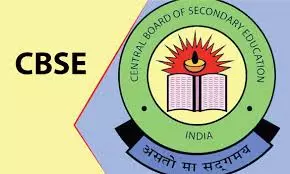CBSE’s two board exams plan cheers up students
Teachers worried over its logistics and implementation

Hyderabad: The CBSE’s proposal to introduce two board exams for Class 10 from the 2025-26 academic year has stirred a mix of relief, enthusiasm, and concern in Hyderabad. While students and parents welcome the flexibility, school administrators and teachers worry about the logistical hurdles. The plan, a part of the National Education Policy 2020’s push for student-centric reforms, aims to reduce pressure by allowing students to have two attempts — one in February and another in May — with the best score being considered. However, its implementation raises questions about feasibility, staffing, and scheduling.
A member of the Hyderabad Sahodaya Schools Complex, an association of CBSE school teachers, pointed out that while this will benefit students, the increased workload will strain teachers and school management. “It is great for students but cumbersome for teachers. Many will have to work through their May holidays, and with a staff crunch during that time, we might face operational issues. It’s summer vacation after all. It will be difficult without manpower,” said the teacher, adding, “What about our holidays and our break?” Further, schools that already struggle with managing faculty during the off-season, the challenge will be real.
However, not everyone sees it as a problem. Nandita Sunkara from Delhi Public School, Mahindra Hills, dismissed concerns about school burden and called the move a “good stride.” She pointed out that the entire process would conclude by June which will prevent disruption. “This gives students flexibility, and their final score will reflect in the marksheet regardless of which exam they take. Slow learners will get extra time, and this is also a great move towards 100 per cent literacy. If we look at the stats, so many students drop out because they fail a single exam, so, this will give them another chance and that aligns with what the NEP envisages.”
As for students, the shift is overwhelmingly positive. The traditional system, where a single high-stakes exam determines a child’s future, has long been criticised for causing extreme stress.
City psychiatrist Dr Vishal Akula believes this change could have a real impact on student mental health. “Students are under immense stress when everything depends on one exam. Student suicides have risen over the years due to academic pressure. Keeping that in mind, this is a welcome decision, and I believe it will improve things,” he said.
Students themselves seem relieved, with many feeling reassured that a bad exam day won’t seal their fate. Parents, too, see it as a fairer system, though some have concerns about whether the two-exam format will lead to unnecessary competition or a dilution of standards. While the draft policy offers a safety net, its execution remains a question.
CBSE has opened the policy for public feedback until March 9. The board is expecting responses, following which a decision will be taken.
